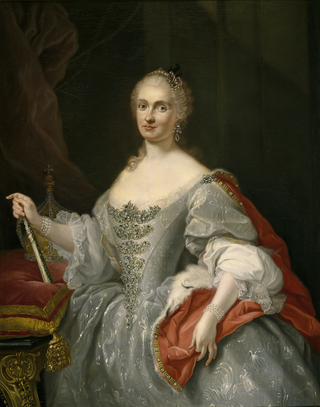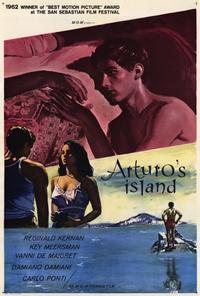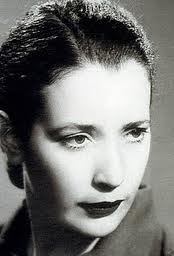
Procida is one of the Flegrean Islands off the coast of Naples in southern Italy. The island is between Cape Miseno and the island of Ischia. With its tiny satellite island of Vivara, it is a comune of the Metropolitan City of Naples, in the region of Campania.

Elsa Morante was an Italian novelist, poet, translator and children's books author. Her novel La storia (History) is included in the Bokklubben World Library List of 100 Best Books of All Time.

Maria Amalia was Queen of Spain from 10 August 1759 until her death in 1760 as the wife of King Charles III. Previously, she had been Queen of Naples and Sicily since marrying Charles on 19 June 1738. She was born a princess of Poland and Saxony, daughter of King Augustus III of Poland and Princess Maria Josepha of Austria. Maria Amalia and Charles had thirteen children, of whom seven survived into adulthood. A popular consort, Maria Amalia oversaw the construction of the Caserta Palace outside Naples as well as various other projects, and she is known for her influence upon the affairs of state.

Enrico Brizzi is an Italian writer. He is best known for his debut novel Jack Frusciante Has Left the Band, which is so far the only one translated into English. It also inspired the same name Italian movie in 1996.

Domenico Starnone is an Italian writer, screenwriter, and journalist. He is a prolific book author, having penned at least 22 works since 1987, at least four of which have been translated from Italian into English, including Prima esecuzione and Confidenza. His novel Via Gemito won the Premio Strega in 2001, and movies by Gabriele Salvatores, Riccardo Milani, and Daniele Luchetti have been based on Starnone books.

Sandro Veronesi is an Italian novelist, essayist, and journalist. After earning a degree in architecture at the University of Florence, he opted for a writing career in his mid to late twenties. Veronesi published his first book at the age of 25, a collection of poetry that has remained his only venture into verse writing. He has since published five novels, three books of essays, one theatrical piece, numerous introductions to novels and collections of essays, interviews, screenplays, and television programs.

Roberto Pazzi was an Italian novelist and poet. His works have been translated into twenty-six languages. He was widely recognized in Italian literary circles for his poetry and novels. His Debut novel, Cercando l'Imperatore in 1985, received a number of international awards and started a prolific career of historical and contemporary novels.
Arturo's Island is a novel by Italian author Elsa Morante. Published in 1957, it won the Premio Strega.
Giorgio van Straten is an Italian writer and manager of arts organizations. His first novel Generazione was published in 1987. In 2000 he won four literary prizes for Il mio nome a memoria, published in English as My Name, A Living Memory (2003), the story of his Jewish-Dutch family from 1811 to our days. That same year he was awarded the Grand Official Order of Merit of the Italian Republic.

Nasty Love is a 1995 Italian thriller film directed by Mario Martone. It was entered into the 1995 Cannes Film Festival. It is based on the novel of the same name, by Elena Ferrante. The film was shot mainly in Naples, Italy.

Valeria Parrella is an Italian author, playwright and activist.
Elena Ferrante is a pseudonymous Italian novelist. Ferrante's books, originally published in Italian, have been translated into many languages. Her four-book series of Neapolitan Novels are her most widely known works.

L'isola di Arturo is a 1962 Italian drama film directed by Damiano Damiani. It is based on the novel with the same name written by Elsa Morante. The film won the Golden Shell at the San Sebastián International Film Festival.

Anna Maria Ortese was an Italian author of novels, short stories, poetry, and travel writing. Born in Rome, she grew up between southern Italy and Tripoli, with her formal education ending at age thirteen. Her first book, Angelici dolori, was issued in 1937. In 1953 her third collection, Il mare non bagna Napoli, won the coveted Viareggio Prize; thereafter, Ortese's stories, novels, and journalism received many of the most distinguished Italian literary awards, including the Strega and the Fiuggi. Although she lived for many years in Naples following the Second World War, she also resided in Milan, in Rome, and for most of the last twenty years of her life in Rapallo. L'iguana, Ortese’s best-known work in English translation, was published in 1987 as The Iguana by the American literary press McPherson & Company. As of 2023, what she considered as her most important work, the novel Il porto di Toledo (1975), had not been translated into English yet.

Milena Agus is an Italian author from Sardinia. She is one of the leading novelists in the so-called Sardinian Literary Spring which began in the 1980s and which includes other international names such as Michela Murgia.
The Neapolitan Novels, also known as the Neapolitan Quartet, are a four-part series of fiction by the pseudonymous Italian author Elena Ferrante, published originally by Edizioni e/o, translated into English by Ann Goldstein, and published by Europa Editions. The English-language titles of the novels are My Brilliant Friend (2012), The Story of a New Name (2013), Those Who Leave and Those Who Stay (2014), and The Story of the Lost Child (2015). In the original Italian edition, the whole series bears the title of the first novel L'amica geniale. The series has been characterized as a bildungsroman, or coming-of-age story. In an interview in Harper's Magazine, Elena Ferrante has stated that she considers the four books to be "a single novel" published serially for reasons of length and duration. The series has sold over 10 million copies in 40 countries.

Angelo Cannavacciuolo is an Italian writer and director.
Ann Goldstein is an American editor and translator from the Italian language. She is best known for her translations of Elena Ferrante's Neapolitan Quartet. She was the panel chair for translated fiction at the US National Book Award in 2022. She was awarded the PEN Renato Poggioli prize in 1994 and was a Guggenheim Fellow in 2008.
The Days of Abandonment is a 2002 Italian novel by Elena Ferrante first published in English in 2005, translated by Ann Goldstein and published by Europa Editions. The novel tells the story of an Italian woman living in Turin whose husband abruptly leaves her after fifteen years together.
Frantumaglia is a non-fiction book written by Italian author Elena Ferrante. The book reflects on her writing process over 20 years, and has been republished to reflect her experiences writing the Neapolitan Novels.












